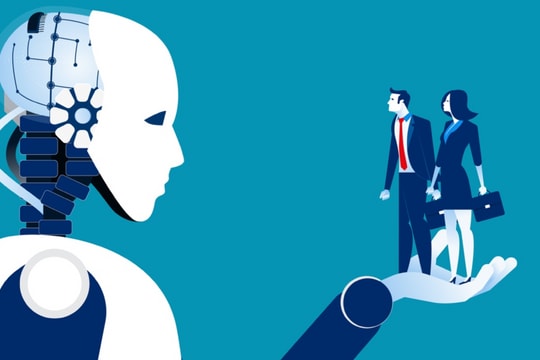UN warns: AI threatens 40% of jobs, increasing global inequality
The latest report from the United Nations shows that artificial intelligence (AI) could impact 40% of jobs globally, increasing the gap between rich and poor countries.
According to a report from the United Nations Conference on Trade and Development (UNCTAD), AI is expected to reach a market value of $4.8 trillion by 2033, equivalent to the size of the German economy.
AI promises to bring many economic benefits, including increasing productivity, promoting digital transformation, and improving operational efficiency in many areas.
However, the report released on April 3 by UNCTAD also warned about the accompanying risks, especially the impact of AI on the labor market.
An estimated 40% of jobs globally could be affected by automation, raising concerns about job losses and large-scale labor displacement.

Notably, the report highlights that AI is not an inclusive technology, meaning the economic benefits it generates are largely concentrated in certain groups, rather than being distributed evenly across countries and social classes.
The benefits of AI-driven automation often favor capital over labor, which could exacerbate global inequality.
In particular, developing countries whose economies depend on cheap labor may lose their competitive edge as AI and automation become dominant trends in many industries.
Concerns about AI causing unemployment and increasing inequality are not new. The International Monetary Fund (IMF) issued similar warnings more than a year ago.
By January this year, the World Economic Forum (WEF) published a report showing that 41% of employers planned to cut staff in areas where AI could replace humans. This shows that the impact of AI on jobs is no longer a distant prediction but is gradually becoming a reality.
However, besides the impact on the labor market, the UNCTAD report also highlights inequality between countries in the race to develop AI.
Data from the United Nations shows that 40% of total global spending on AI research and development is concentrated in just 100 companies, most of which are large technology corporations in the US and China. This means that countries with weaker economies are increasingly being left behind in the new technological revolution.
Moreover, the economic power of tech giants is also a concern. The report notes that AI leaders such as Apple, Nvidia and Microsoft – the biggest beneficiaries of the technology boom – now have a market value equal to the entire gross domestic product (GDP) of Africa.
This represents an unprecedented level of concentration of wealth and power, which could exacerbate the gap between rich and poor regions.
In addition, AI dominance at the corporate and national levels also puts many developing countries at risk of falling behind in the technology race.
UNCTAD warns that 118 countries, mostly in the Global South, currently have no voice in global discussions on AI governance.
This could cost them the opportunity to shape important rules, standards and policies in the sector, further pushing them further behind in the technology competition.
United Nations Recommendations
While AI could replace many traditional jobs, the UNCTAD report highlights that the technology also has the potential to create entirely new industries and empower workers.
However, this can only happen if there is adequate investment in retraining and upskilling the workforce. Equipping workers with the right skills will help them not only adapt to the changing job market but also take advantage of the opportunities that AI brings.
To ensure that developing countries are not left behind, the report stresses that they need to have a seat at the table when it comes to developing AI regulations and ethical frameworks.
Without participation in this process, poorer countries may have to accept technological standards imposed by developed countries, leading to increasing inequality in accessing and exploiting the benefits of AI.

In an effort to promote equitable and inclusive development, UNCTAD has issued a series of recommendations for the international community to ensure that AI does not only benefit a few countries or technology corporations. These recommendations include:
- Strengthen AI disclosure mechanisms, ensuring transparency in technology development and application.
- Building a shared AI infrastructure that allows countries and organizations to access technological resources equally.
- Encourage the use of open-source AI models, which helps reduce dependence on proprietary systems from large tech companies.
- Develop initiatives to share AI knowledge and resources, creating conditions for developing countries to participate in the technological revolution.
The report also highlights the importance of open-source AI, an approach in which the source code of AI software is made public on the internet, allowing anyone to modify, improve, and redistribute it.
This helps expand access to AI, while encouraging innovation from under-resourced communities and countries.
“AI can be a catalyst for progress, innovation and shared prosperity, but this will only happen if countries proactively shape its trajectory,” the report concludes.
Achieving this will require a close coordination of strategic investment, inclusive governance and international cooperation, which is key to ensuring AI benefits everyone, rather than exacerbating existing wealth gaps and inequalities.





